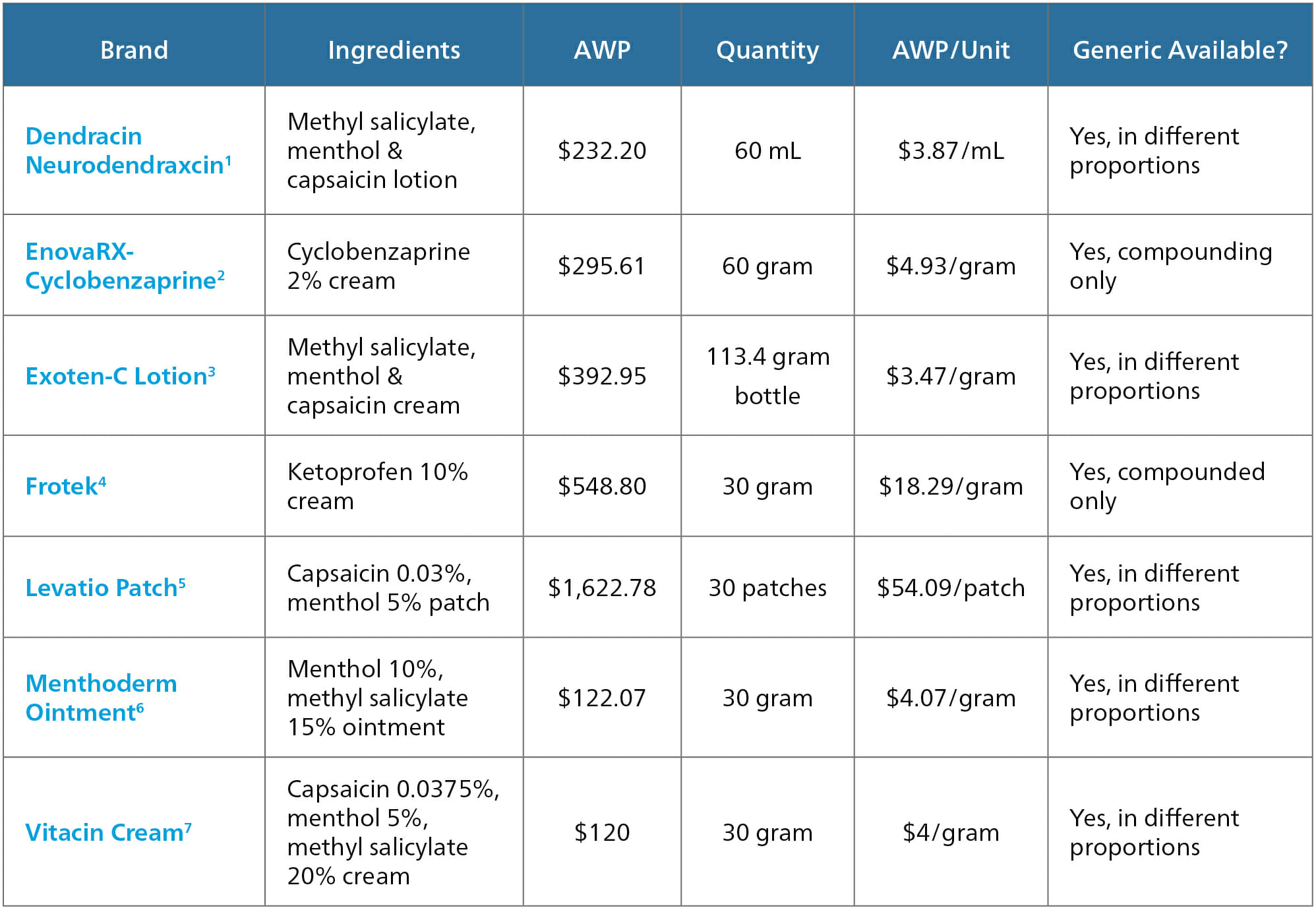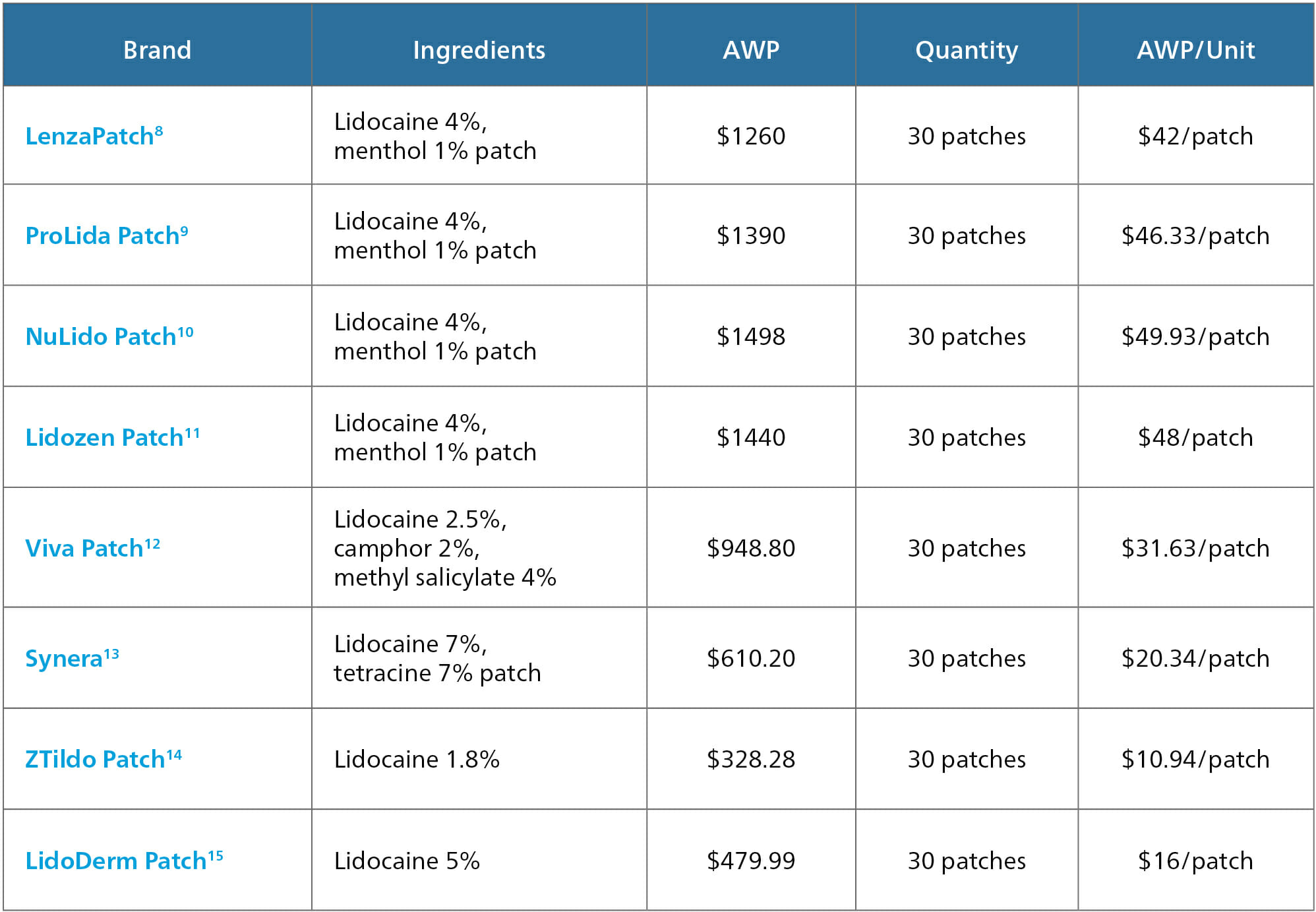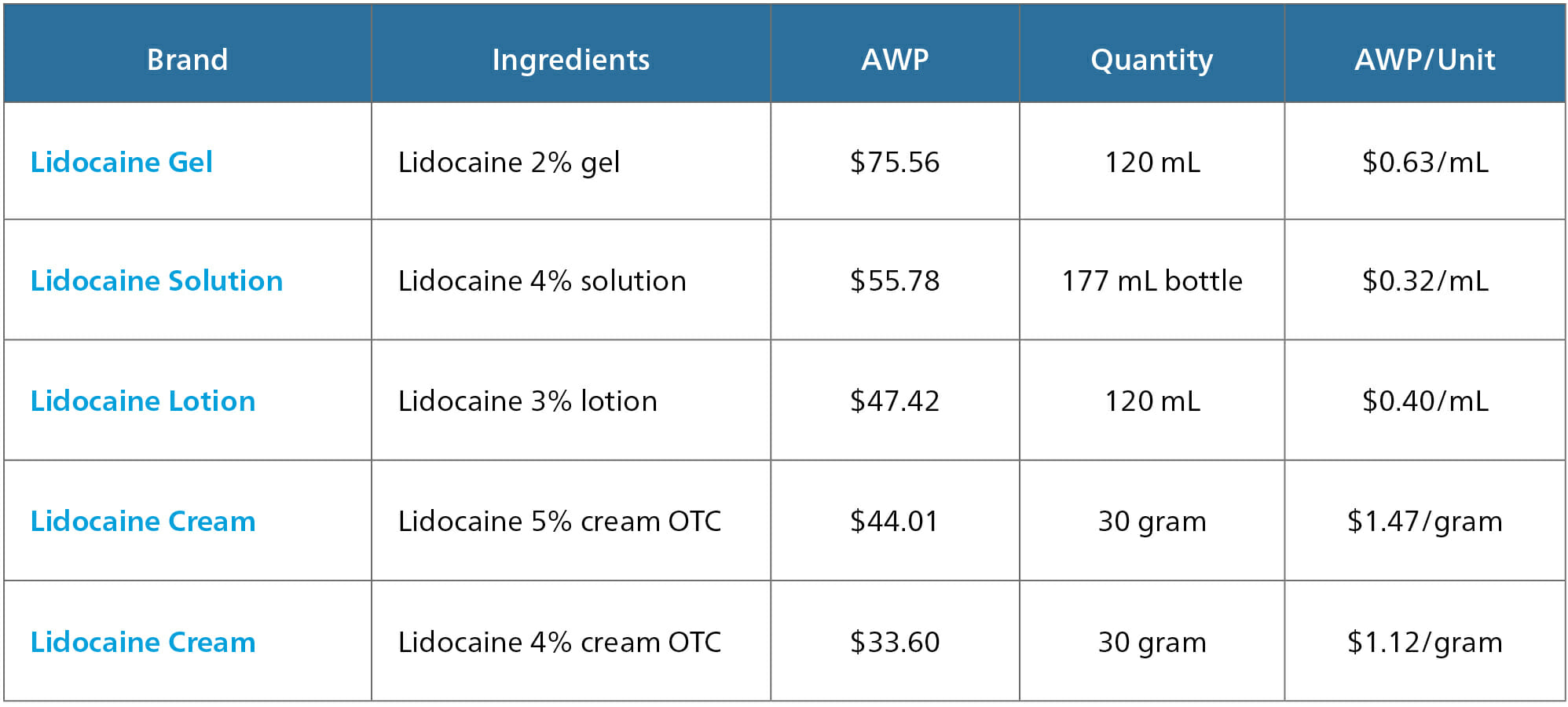Topical Medications in Workers' Compensation and Auto Casualty
This article is part of our ongoing Quarterly Drug Update series. View our last article on gabapentinoids. Topical medications are an important part of care in the workers’ compensation and auto casualty industries, providing relief for patients in pain. In the past few years, the variety of available topical medications has increased, which has also driven up the number of prescriptions, particularly for new analgesic and local anesthetic drugs. While this variety allows for greater choice, many of the new branded medications are very expensive. A recent report highlighted that drug prices overall are increasing at five times inflation. However, topical medication costs are rising faster. In a study published by the National Institutes of Health in 2018, researchers studied 51 topical chemical entities from 2005–2016. In that time, “the AWP of topical generic medications increased by 273% and the AWP of topical branded medications increased by 379%. The topical generic with the greatest price change increased by 2529%. Eight of the top 20 topical generic medications with the greatest increases in AWP also had an increase in the number of manufacturers.” The good news for patients and insurers is that there are often lower-priced, therapeutically equivalent generic alternatives available. Many of these options have been available as over-the-counter medications for years (e.g. Icy Hot, Aspercreme, Myoflex). First, let’s take a look at common ingredients in topical medications and their uses.
Topical Medication Ingredients
Capsaicin
Capasaicin, a natural component of chili peppers, is used in its synthetically derived version as a topical analgesic. According to PubChem, National Center for Biotechnology Information, “used topically, capsaicin aids in controlling peripheral nerve pain.” Capsaicin can be found as a cream, liquid or patch in various strengths.
Methyl Salicylate
Methyl salicylate is in the pharmacological class of counterirritants. Methyl salicylate can be used for relief of acute pain. Salonpas, an over-the-counter formulation of methyl salicylate, is indicated for “temporary relief of mild to moderate aches and pains of muscles and joints associated with arthritis, simple backache, strains, bruises and sprains.”
Menthol
Menthol is a substance naturally found in mint plants such as peppermint and spearmint. When applied topically, menthol gives a cooling, then warming, sensation. According to PubChem, “it also has a counterirritant effect on skin and mucous membranes, thereby producing a local analgesic or anesthetic effect.” Menthol can relieve minor pain and irritation. Menthol is added to many topical products, many of which are available over-the-counter.
Lidocaine
Lidocaine is a local anesthetic. Lidocaine is often used to numb tissue in a specific area. Lidocaine is also used to treat ventricular tachycardia in intravenous formulation. Lidocaine is available in creams, ointments and patches.
Examples of Topical Medications
Below are several examples of topical medications that are often available as generics.
Lidocaine Products
Several lidocaine products exist at very high cost. Here are a few examples that you might see in your claims. Below the brand name products are a few generic options available at lower cost.
Brand Name Lidocaine Patches
Generic Lidocaine Patches
Brand Name Lidocaine Gels, Creams and Lotions
Generic Lidocaine Gels, Creams and Lotions
Taking Action on Topical Medications
With so many topical medication options to choose from, it is important to consider the best choices for your patients. Where available and appropriate, opt for the generic medications over the brand-name medications. Additionally, work closely with your PBM to identify therapeutic alternatives that deliver the same clinical benefit while being much more cost-effective. Some states are moving to control costs associated with topical medications. For instance, New York’s formulary went into effect on December 5, 2019, for new prescriptions. This formulary includes lidocaine patches and creams, but only in the 4% strength, which are available as over-the-counter products. For more information or if you have specific questions about a medication, please contact Mitchell ScriptAdvisor.







